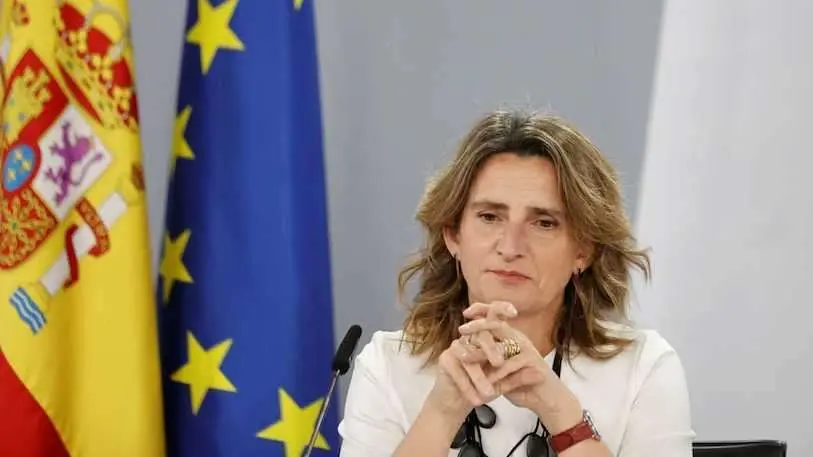The Government's failure in Brussels with the price of electricity

Brussels is aware of the failure of the Spanish Government in relation to the price of electricity after an agreement, exclusively political, between the Minister of Ecological Transition, Teresa Rivera, and the European Commissioner for Competition, Margrethe Vestager.
The government's first serious mistake was to propose a €30 cap on gas. The Commission's response has been an average €50 cap on gas for electricity production. A limit that is considered a mistake for the proper functioning of the European Union: an Iberexit. This is almost double what the government was asking for, and it has come out in a flurry, showing its success with the manifest imposture of someone who knows that he has failed on his return.
But the most resounding failure has been to observe how the Spanish Government proposes that the difference between the market price of the gas companies and the ceiling that it is now going to impose, will be returned to the gas companies, which are the ones that truly obtain profits fallen from the sky.
And who pays the difference or subsidy to the gas companies? The rest of the consumers. This deserves an explanation. 80% of the electricity demand has fixed prices, that is to say, the price has not gone up in the last months and years. It has risen for 20% of the electricity demand, the so-called regulated tariff, the one whose prices are linked to an exorbitant international price. This only happens in Spain.
In this sense, the rise in the price of gas has meant that electricity companies have had to buy more expensive gas to produce electricity. In this context and for this reason, their profits have been cut.
Xavier Vidal-Folch read at 20:15 yesterday evening on Cadena SER a pamphlet in which he said that the move was going to benefit consumers, even that it would make... inflation disappear! As everybody knows, inflation in Spain is miscalculated because it contemplates the increase in electricity prices only for 20% of the demand and not for the rest, something that has been recognized by everybody, except for Vidal-Folch, who did not blush when he criticized Endesa... because it was Italian!
In short, the agreement is that the government caps gas at 50 €, the difference with the market price to compensate the gas companies, who puts it? who puts it: the consumers!
The rest of the consumers, that 80% of the demand, is the one who pays the gas companies the difference between the cap of 40 or 50 € and the market price. The gas companies continue to get rich and the consumers, the other 80%, those to whom the electricity companies had not raised the price, will be the ones who pay the price. It does not make any sense.
The electricity companies have no extraordinary profits and the gas companies will continue to show brutal profits, this time subsidized by the consumers!
To make matters worse, the European Commission does not recognize the economic agreement, only a general political agreement, following a brief communiqué from the European Commission which we transcribe below. The communiqué states that negotiations will continue and that nothing is closed. This is the communiqué that leaves the Government in an uncomfortable position:
Official position of the Commission
Executive Vice-President Vestager had a good and constructive meeting with Deputy Prime Minister Ribera and Minister Cordeiro. They discussed the emergency temporary measures in the electricity market proposed by Spain and Portugal.
In line with the conclusions of the European Council of 24-25 March, the Commission supports Spain's and Portugal's efforts to help the economy in a context of sustained high energy prices across the EU following Russia's unjustified attack on Ukraine.
The meeting allowed us to reach a political agreement in principle with the Spanish and Portuguese authorities which would enable them to take proportionate and temporary measures to address electricity price levels, to maintain incentives for the sustainable energy transition and to preserve the integrity and benefits of the single market. Contacts will now continue at full speed at technical level.
This follows intense and constructive discussions over recent weeks between Executive Vice-President Vestager, Commissioner Simson and the Spanish and Portuguese authorities.


